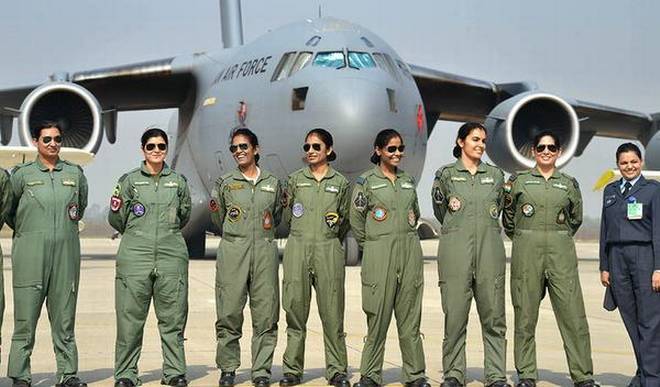“Let her fly… let her be airborne all the time,Says Supreme Court
 NEW DELHI : “Let her fly… let her be airborne all the time,” the Supreme Court told the government, taking Air Force woman pilot Sandeep Kaur under its protective wing.
NEW DELHI : “Let her fly… let her be airborne all the time,” the Supreme Court told the government, taking Air Force woman pilot Sandeep Kaur under its protective wing.
A Bench led by Chief Justice of India T.S. Thakur offered relief to Ms. Kaur in her fight against the rules of the “Establishment,” under which her time as a pilot was over.
The Union, represented by Attorney-General Mukul Rohatgi, had appealed against a December 13, 2016 order of the Armed Forces Tribunal (AFT), directing the government to reconsider her application for permanent commission and let her continue to serve the country.
Ms. Kaur’s application for a permanent commission was rejected in March 2016. The establishment said she was not “entitled” to seek one. The AFT told the Union to allow Ms. Kaur to stay on if she qualified and was found suitable.
The AFT asked the authorities to decide her application in two months. But the Union decided to take the fight to the Supreme Court and seek a stay of the order.Refusing to accept the demand, the Bench asked Mr. Rohatgi whether she would get a pension. When he answered in the negative, Chief Justice Thakur said, “Then let her fly, let her continue.”
Mr. Rohatgi relented, saying no move would be made to decommission the wing commander, represented by advocate Arun Monga and Kudrat Sandhu, without first seeking the court’s permission.
Mr. Monga quoted from a Delhi High Court order in a similar case to argue that these “young ladies have sacrificed the prime of their life to serve the nation,” but got a raw deal as they left service without a pension.The outcome of Ms. Sandhu’s case brings cheer to several women officers waging a battle in the Supreme Court for equal opportunity.
The Army’s appeal against a March 2010 Delhi High Court judgment holding that women officers “deserve better from the government” is pending in the Supreme Court for five years now. The High Court had observed that “if male officers can be granted permanent commission, there is no reason why equally capable women officers can’t.”
The High Court ruling was on a batch of petitions filed in 2003 by advocate Babita Punia and several women officers to stop ‘discrimination against women Army officers, who are given only Short Service Commission for periods extendable up to 10 years.’ The Army had cited the extreme difficulties a woman officer may have to face in combat situations.
The Navy too appealed against another Delhi High Court order declaring that sexist bias blocked women’s progress. The Navy had contended that “men and women are identified by the same yardstick”.The Hindu

